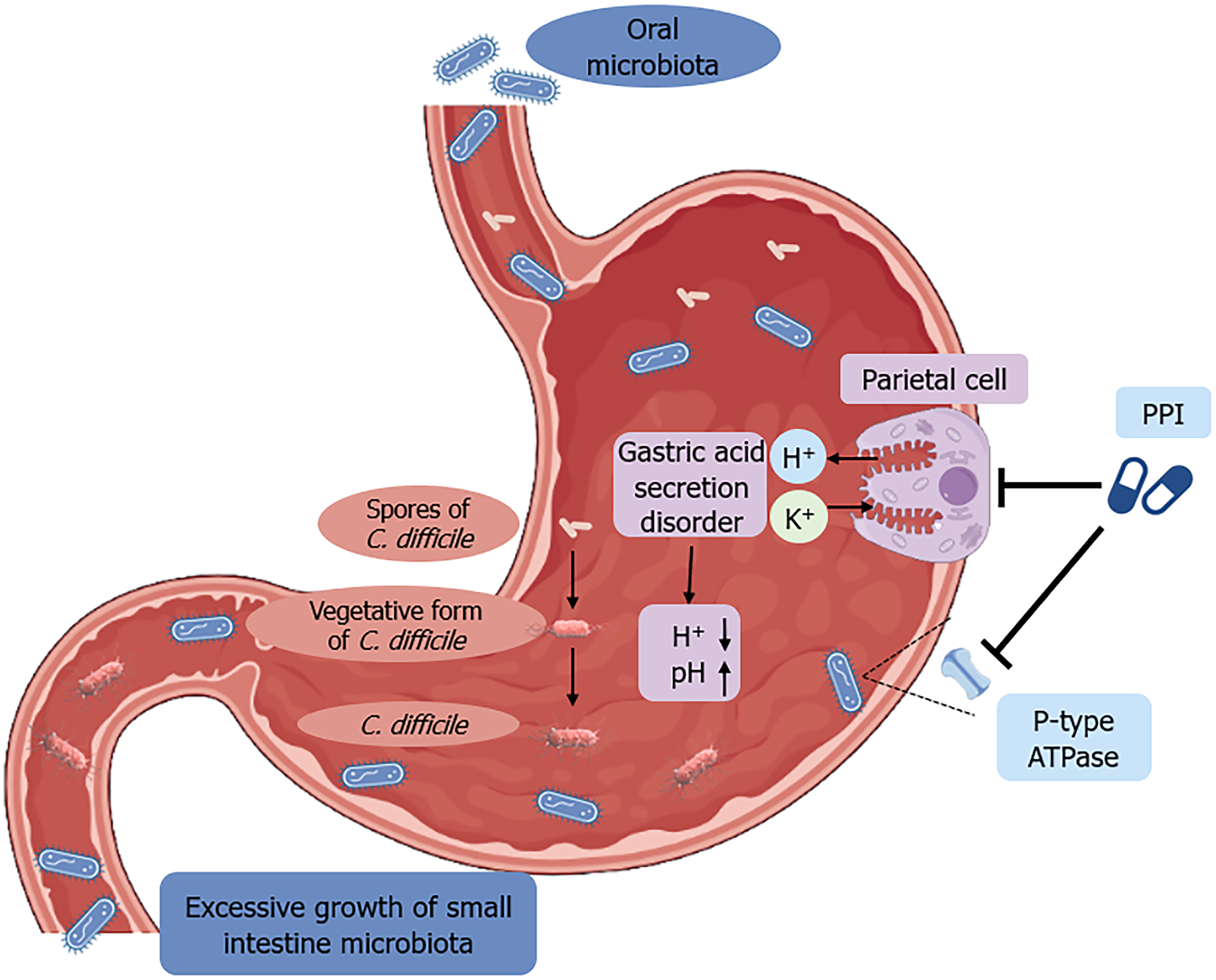Copyright
©The Author(s) 2024.
World J Gastroenterol. Jun 7, 2024; 30(21): 2751-2762
Published online Jun 7, 2024. doi: 10.3748/wjg.v30.i21.2751
Published online Jun 7, 2024. doi: 10.3748/wjg.v30.i21.2751
Figure 2 Impact of proton pump inhibitors on the gastrointestinal microbiota.
Proton pump inhibitors (PPIs) inhibit gastric acid secretion by irreversibly binding to H+/K+ ATPase in gastric parietal cells. An increased pH level facilitates the migration of bacteria from the oral cavity to the intestinal lumen and promotes excessive growth of small intestinal bacteria, exacerbating the imbalance of the intestinal microbiota. PPIs can also directly affect the gastric microenvironment by attacking the P-type ATPase of some bacteria. Additionally, a high gastric pH caused by PPIs can facilitate the survival of the vegetative form of Clostridioides difficile (C. difficile), enhance the survival of germinated spores in the stomach, and increase the number of actively dividing C. difficile cells colonizing the intestinal tract. This PPI-induced dysbiosis of the microbiota may contribute to the occurrence and progression of inflammatory bowel disease. C. difficile: Clostridioides difficile; PPI: Proton pump inhibitor.
- Citation: Liang Y, Meng Z, Ding XL, Jiang M. Effects of proton pump inhibitors on inflammatory bowel disease: An updated review. World J Gastroenterol 2024; 30(21): 2751-2762
- URL: https://www.wjgnet.com/1007-9327/full/v30/i21/2751.htm
- DOI: https://dx.doi.org/10.3748/wjg.v30.i21.2751









